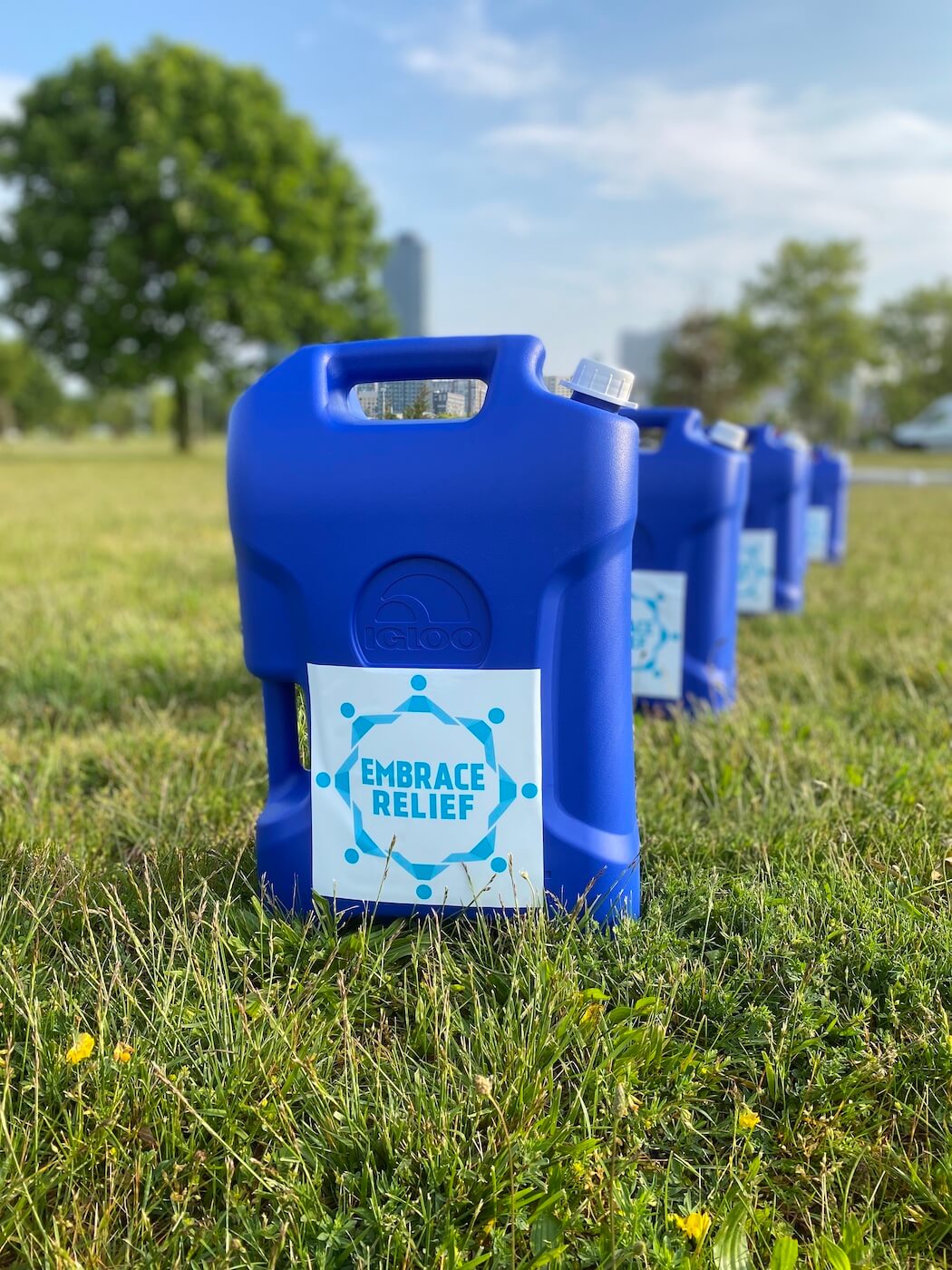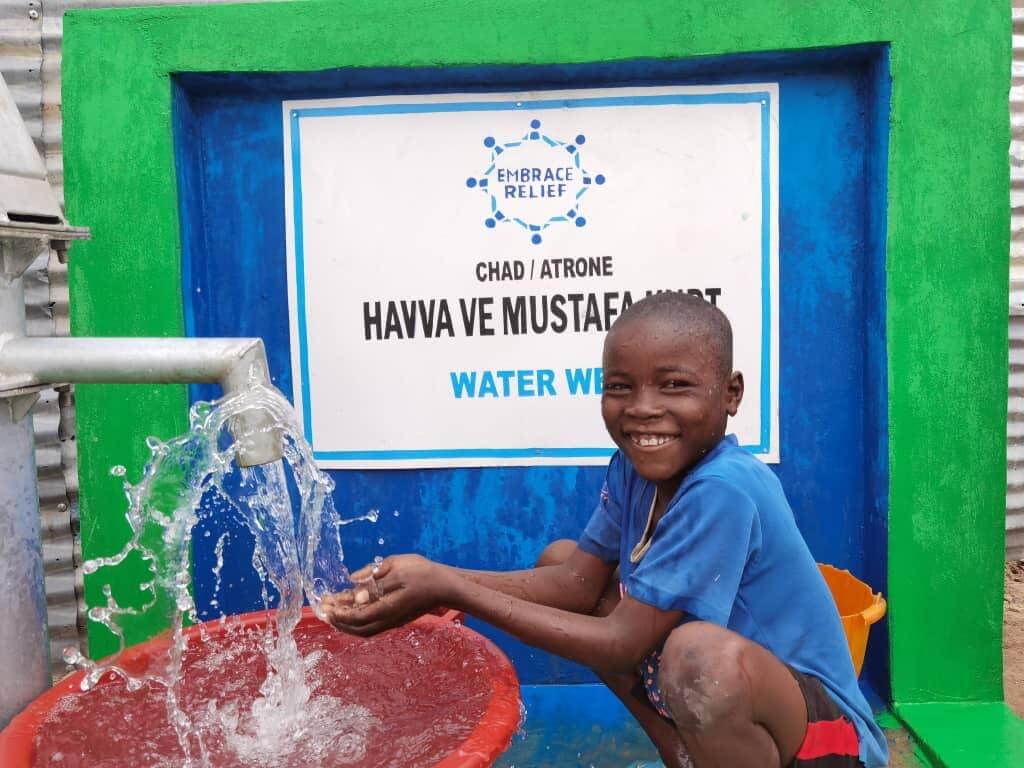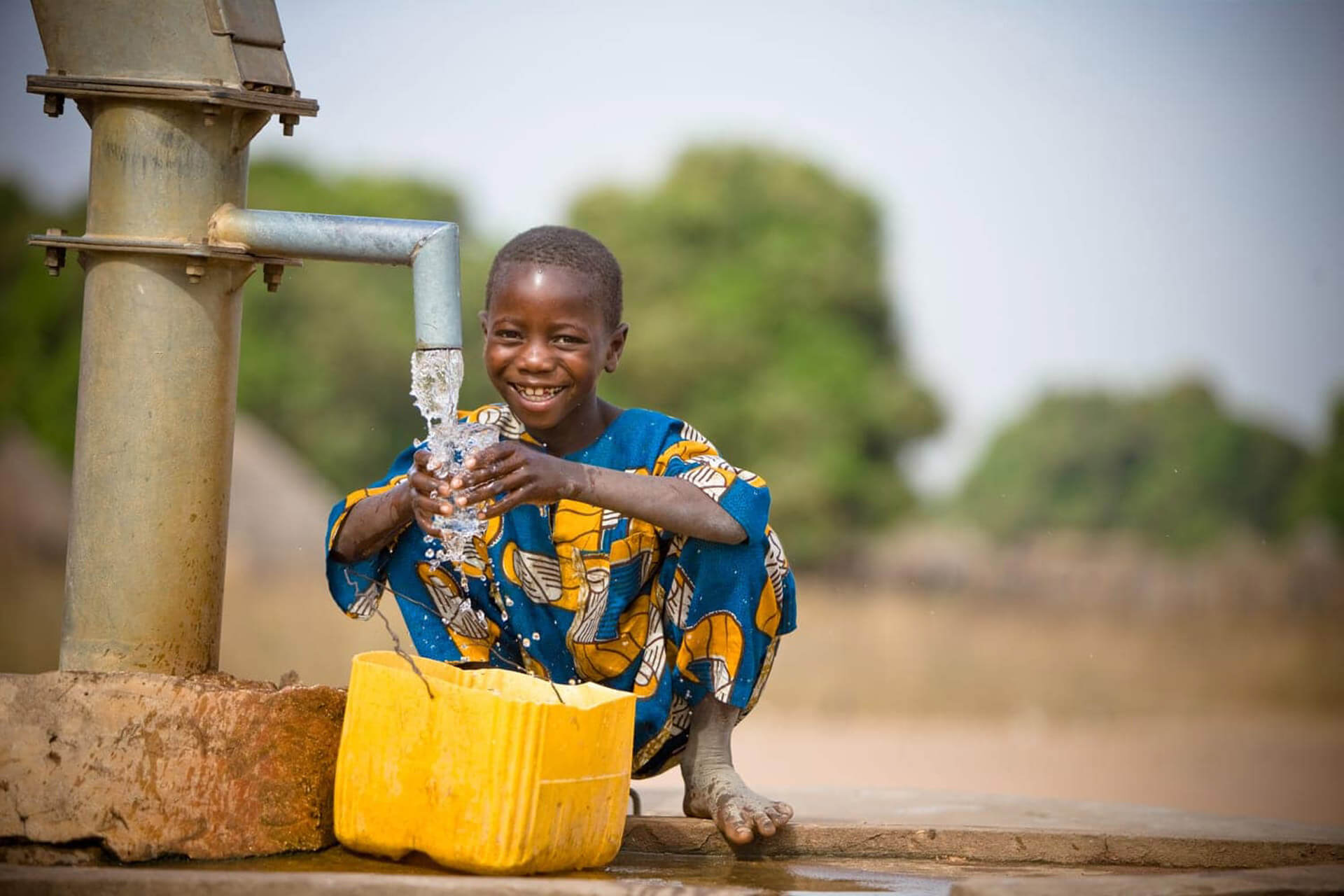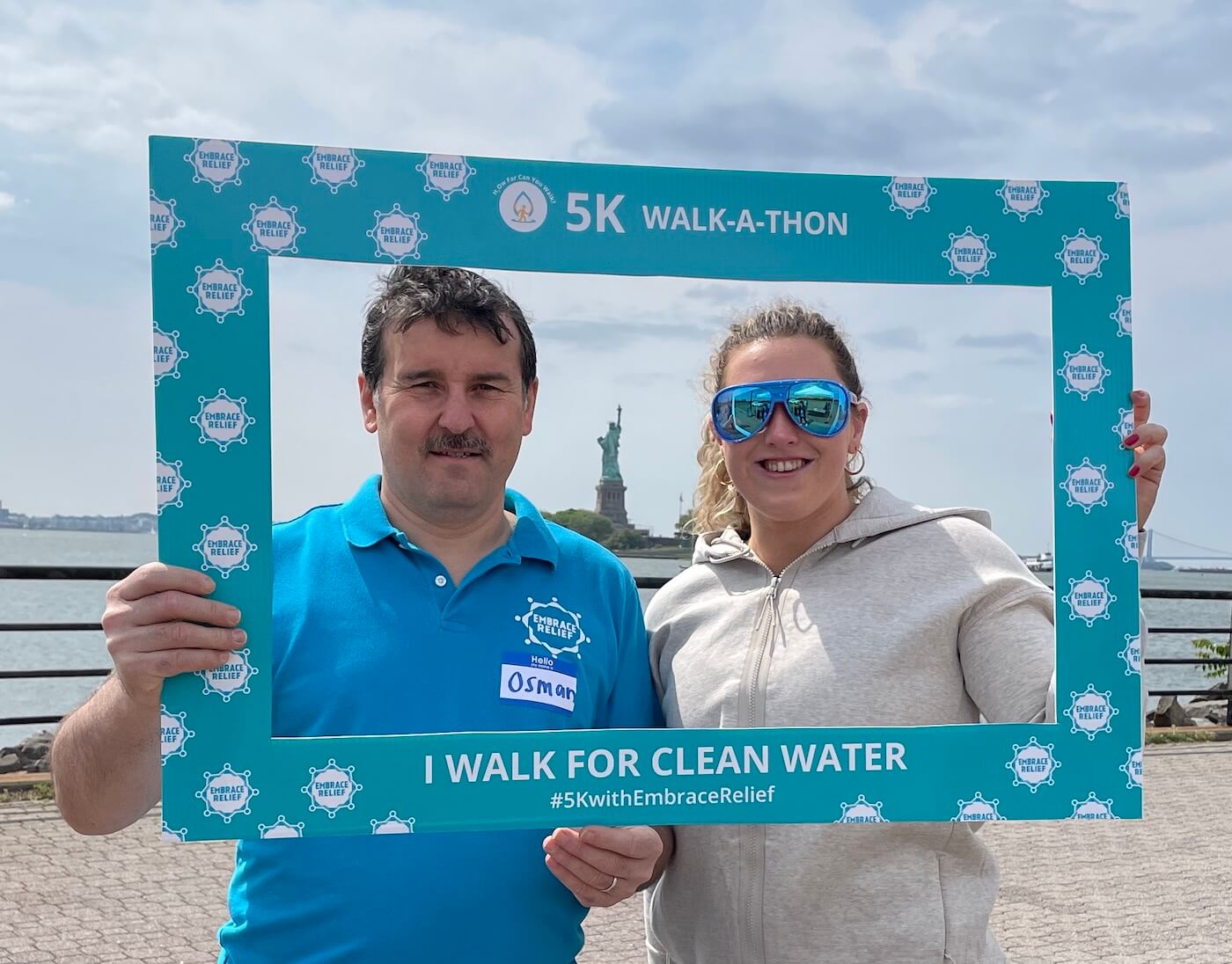Summary
- Hundreds of millions of people around the world lack access to clean, drinkable water, causing significant challenges to public health, education and the economy. Sub-Saharan Africa is particularly affected by this issue.
- Learn about how building water wells is a practical, sustainable way to overcome these challenges, creating a snowball effect on communities that makes life better for all.
- Then, find out how you can be a part of the solution by donating to support Embrace Relief’s Clean Water Initiative, which has built more than 850 wells in Africa.
An Underground Solution to the Clean Water Crisis
Access to clean water is necessary for any society to thrive. Sadly, for countless communities in sub-Saharan Africa, water scarcity remains a pressing issue that alters more than 200 million lives for the worse and hinders overall socio-economic development. However, for many people living in this part of the world, the solution is right under their feet.
Sub-Saharan Africa’s vast underground aquifers hold the potential to provide the clean water that is critical for the flourishing of human society. But utilizing this precious resource requires an investment in infrastructure – namely, the building of water wells – that is beyond the means of many of these mostly rural communities. However, it is an investment with the potential to pay off tenfold. When water wells are constructed in Africa, they serve as a beacon of hope, significantly transforming communities and fostering positive outcomes across various sectors. The impact of building water wells in these areas extends far beyond merely giving people and families the clean water they need to drink, clean, cook and farm each day. The key effects include significant improvements in health outcomes, expanded educational opportunities for children, and sustainable economic development for all.
Health Benefits of Water Wells
Clean, safe drinking water is perhaps the most critical building block of a strong public health system. The use of water for personal hygiene and sanitation is one of humanity’s greatest weapons in the fight against deadly viruses and bacteria. The World Health Organization estimates that if every person on earth were to be provided clean water today, we could save up to 1.4 million lives each year. The impact would be even greater than that: millions more people in sub-Saharan Africa and other clean-water-scarce regions contract waterborne diseases but survive, leading to diminished quality of life. These diseases, such as cholera, typhoid, and dysentery, are sadly common in regions with widespread poor water quality. Consequently, the incidence of water-related illnesses decreases, leading to healthier communities, longer life spans, and reduced healthcare expenditures.
Educational Opportunities created to Water Wells
Another second-order effect of building water wells and expanding access to clean water in sub-Saharan Africa is the impact on educational opportunities for children, and especially young girls. In many parts of sub-Saharan Africa, the responsibility of fetching water for families and communities falls predominantly on women and children. Water-fetchers often partake in long, arduous daily journeys to distant water sources. These journeys consume valuable time and energy that could otherwise be allocated to education. Building water wells in more accessible locations diminishes this burden, liberating children, especially girls, from this task and allowing them to attend school regularly. In villages now served by a water well, we regularly see school enrollment and attendance rates rise, with higher graduation rates among girls. Because educational achievement is linked with lower poverty rates, water wells are also associated with the breaking of cycles of poverty.

Economic Empowerment due to Water Wells
Beyond health and education, the introduction of water wells stimulates local economies and fosters community development. Access to clean water is a fundamental prerequisite for economic activities such as agriculture, livestock rearing, and small-scale enterprises. With reliable access to water, farmers can irrigate their fields more efficiently, leading to increased agricultural productivity and food security. Moreover, the establishment of water wells creates employment opportunities, as maintenance and management of the wells require local expertise. This not only generates income within the community but also fosters a sense of ownership and sustainability.
A Snowball Effect
Clean water is so critical to every aspect of a healthy society, even if we take it for granted in the United States. So it is no surprise that all of the positive effects of a water well are linked together, creating a ripple effect that permeates the entire community. Improved health outcomes lead to a more productive workforce, stimulating economic growth and prosperity. As education flourishes, a knowledgeable and skilled labor force emerges, capable of driving innovation and progress. Moreover, the presence of clean water attracts investment and development initiatives, as stakeholders recognize the potential of these communities. Consequently, a virtuous cycle of development ensues, bolstering resilience and sustainability for generations to come.

Make an Impact at Embrace Relief’s Annual 5K Walkathon
Today, we’re asking you to invest in a community and make an impact that will last for generations. You can do so by supporting Embrace Relief’s third annual H2Ow Far Can You Walk 5K Walkathon, which will take place Sunday morning, May 19, 2024! This family- and pet-friendly event will take place at beautiful Liberty State Park in Jersey City, NJ. All proceeds will support Embrace Relief’s Clean Water Initiative to build water wells in Africa.
Click here for more details and ticket information.Can’t join us on May 19? You may also consider making a donation or starting a water well project to Embrace Relief’s Clean Water Initiative, which since 2013 has built or reconstructed more than 850 water wells, creating positive change for more than 900,000 people in the countries of Chad, Cameroon, Nigeria, Tanzania, Kenya, and Uganda. Our wells are built with hand-pumps, ensuring that all members of a community can easily operate them, and requiring no fossil fuel energy. Each well also comes with a guaranteed warranty to ensure that they are maintained and operated for years to come. And we know firsthand that our wells are making the exact sort of impact that we’ve outlined above.
Click here to learn more about Embrace Relief’s Clean Water Initiative.With your support, we will walk for water on May 19 so that our friends across Africa will no longer need to. Together, we can unlock vast amounts of human potential and create a better, healthier, wealthier future for all of us!






















